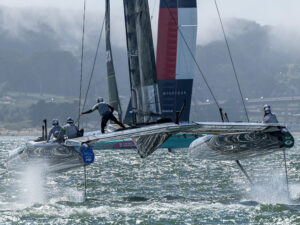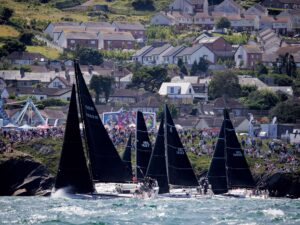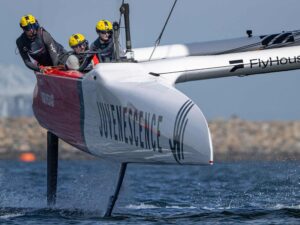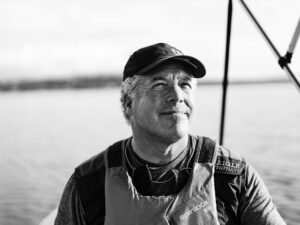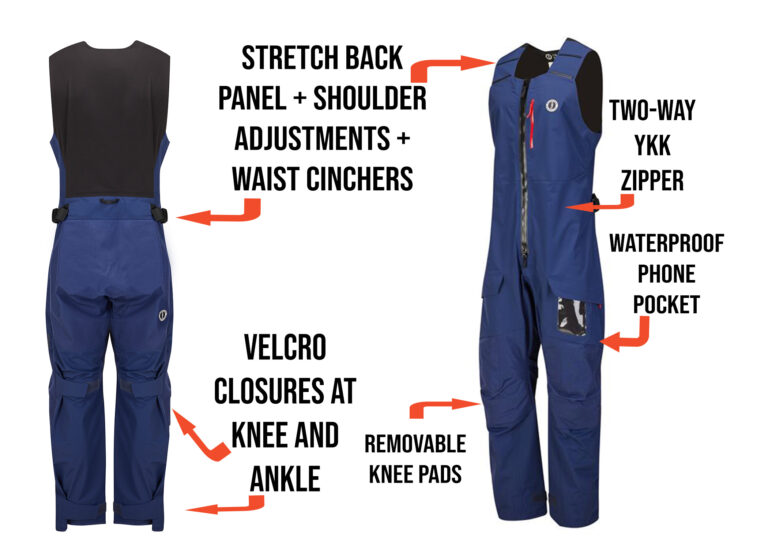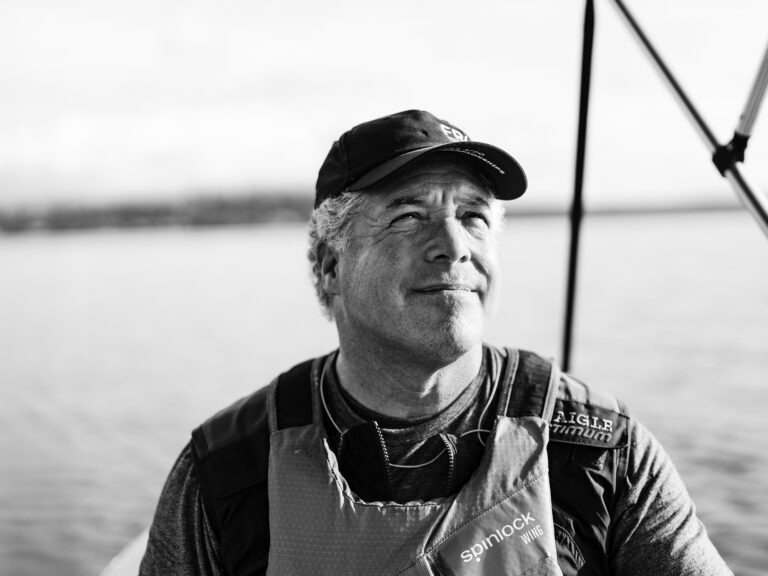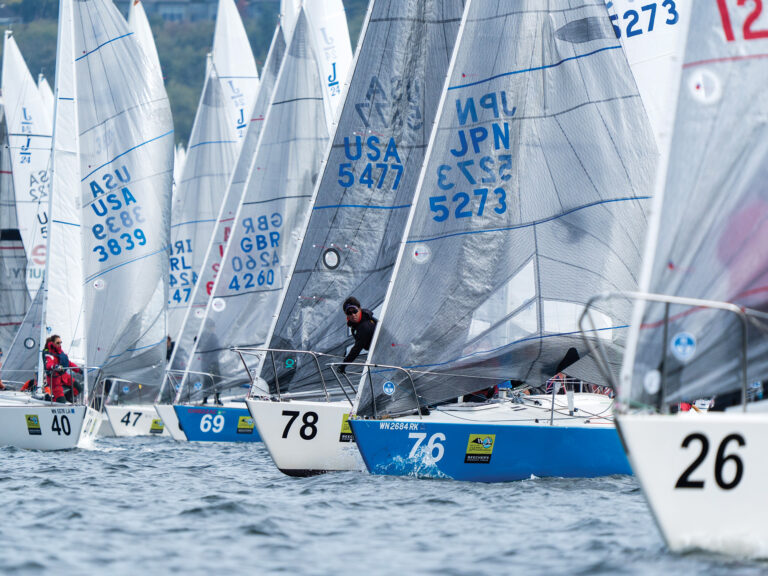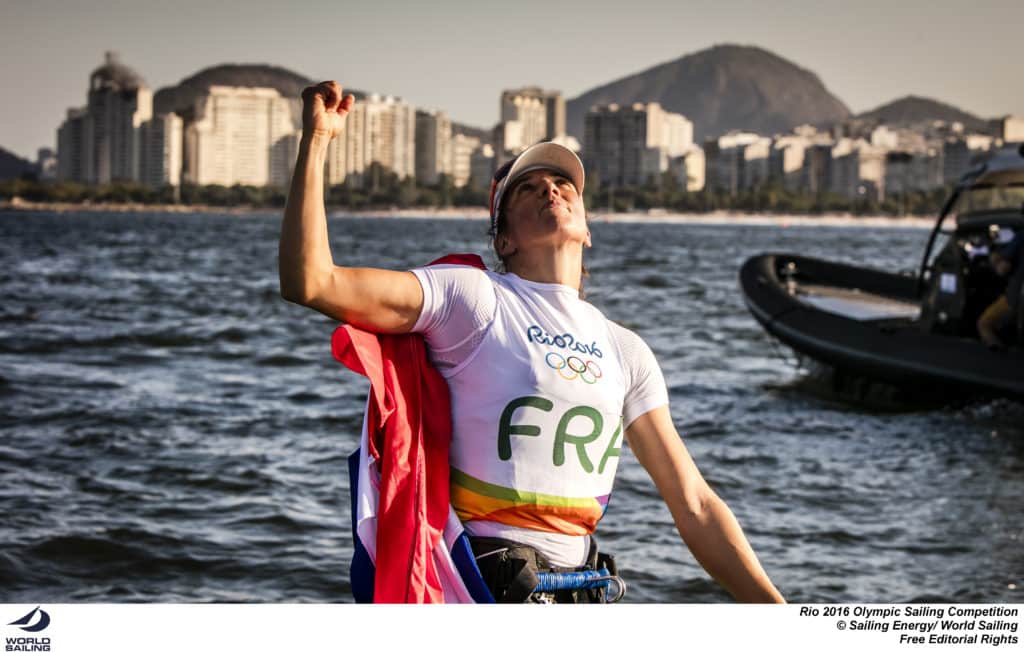
The Rio 2016 Olympic Sailing Competition
Today was truly Super Sunday for the Great Britain sailing squad. With Nick Dempsey‘s record-breaking silver in the RS:X (he now has three RS:X medals, the most in history) and Giles Scott securing Finn gold with an unassailable lead going into Monday’s medal race, the Brits pulled into second place in the overall Olympic medal count — quite a feat for the small nation.
Dempsey was beat out of the top spot before the medal race even began, by Netherland’s Dorian Van Rijsselberghe in a carbon-copy repeat of the 2012 Games, but had himself secured silver in the same manner. If Van Rijsselberghe didn’t make enough of a statement securing gold before the final, he won the medal race, too.
“We had a wonderful week sailing and today it was only just for show, but I’m glad that I pulled off another first place and win,” says Van Rijsselberghe. “I’m very fortunate.”
Immediately after finishing the medal race, Van Rijsselberghe boarded a nearby spectator boat to be congratulated by none other than the Dutch royal family. Both Van Rijsselberghe and Dempsey eluded today that they would not be returning for the next summer Games, in Tokyo in 2020. But, if “retired” athletes like Michael Phelps have taught us anything about the Olympics, don’t believe it until qualification is over. If it’s indeed true, the RS:X men’s fleet will wide open in four years time.
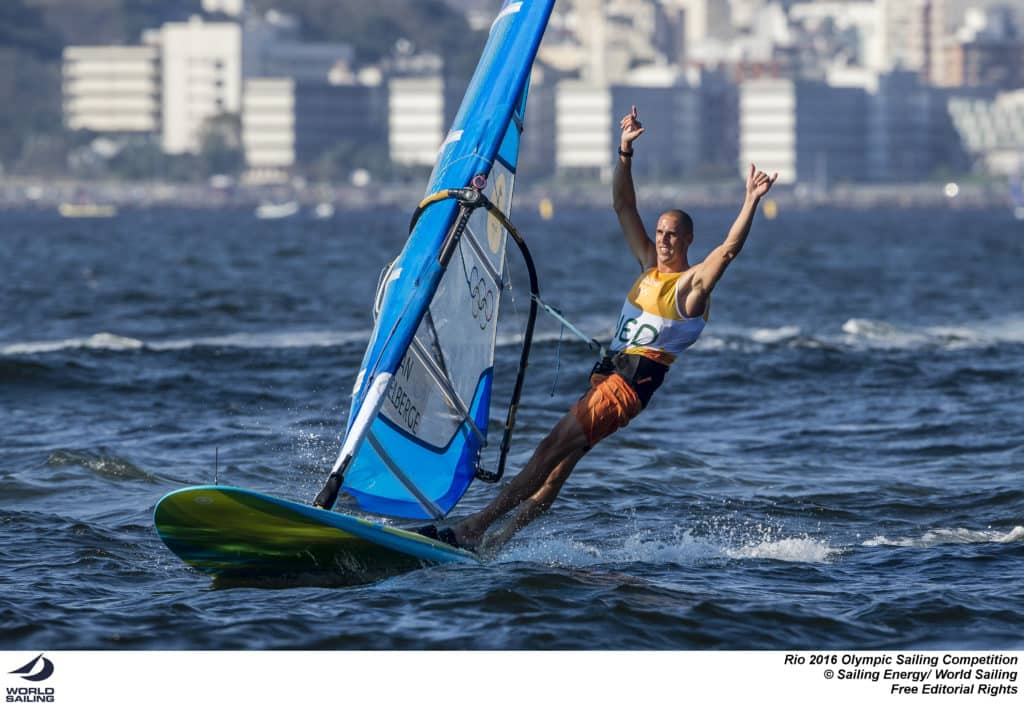
The Rio 2016 Olympic Sailing Competition
Scott’s performance in the Finn is certainly worthy of his secured gold medal. Even before the regatta, he had been sailing in Great Britain’s Finn star Ben Ainsle“s shadow since before the London Games, and when Ainsle retired it was uncertain if Scott would be able to carry the gold medal torch. In Rio, he started the regatta on about as wrong a foot as he could, with a 17th place finish in the first race. Rallying with a third, then a 1-2 in the second day, he again slipped with an 11th in the third day before shaking whatever start-line gremlin which had been bothering him through the regatta to secure his gold in the final four races, over two days.
“Coming down the last reach in that last race, I didn’t quite know what to make of it,” he says. “I’m not the emotional sort, but started crying. It’s such a weird, but amazing thing to go through. It’s incredible.”
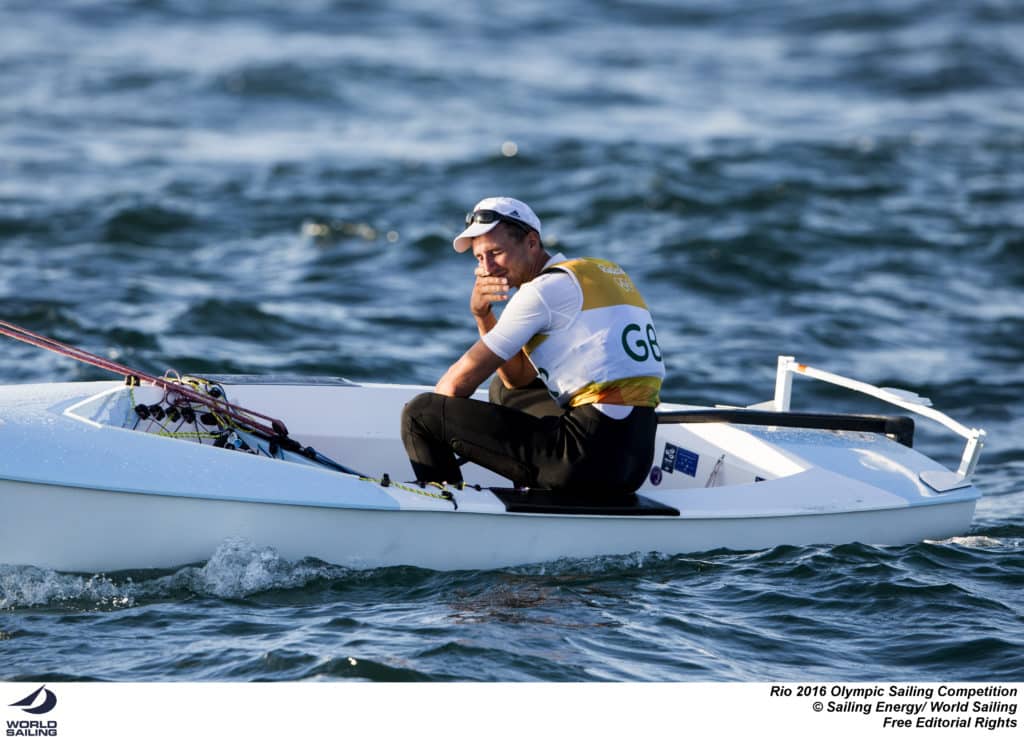
The Rio 2016 Olympic Sailing Competition
It was a great day to be French, too. The French Olympic squad put away two medals themselves, with RS:X sailor Charline Picon winning gold on the women’s side and Pierre Le Coq winning bronze on the men’s side.
For Le Coq, his race truly was a battle for bronze, and he just got it by beating Poland’s Piotr Myszka by two places (four points) in the medal race. Myszka made the fatal mistake of going right on two downwind legs on a course where the left was extremely favored, the first move giving Le Coq the lead and the second letting the now-bronze medalist pull away and allowing Greece’s Byron Kokkalanis to get between the two, securing Le Coq the medal.
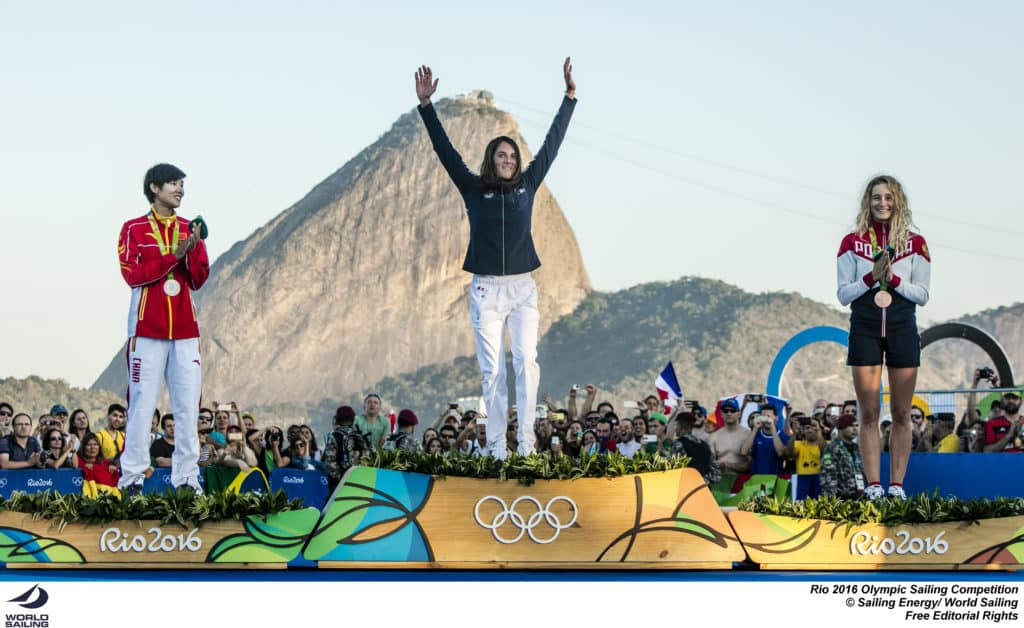
The Rio 2016 Olympic Sailing Competition
The Finns and Nacras both completed their final day of preliminary racing today, with the top ten from each fleet going into Tuesday’s medal race after a well-earned break.
For the Finns, the winner is decided, and the silver medal comes down to three — Slovenia’s Vasilij Zbogar, Croatia’s Ivan Kljakovic Gaspic, and USA’s Caleb Paine. Gaspic lead the fleet after day one, but has struggled in the seabreeze as the Finns have raced further out in the bay. At 40 years old, he says he’s much lighter than his competitors which makes him a great contender in light air, but he struggles to sail as hard in the bigger stuff. The medal race course is the Pao du Acucar, which has been light every day since the Olympic regatta, which could give Gaspic the advantage over young and super-physical Zbogar. Even so, if there’s anything these athletes have learned about Rio during training and the Games, the weather is completely unpredictable.
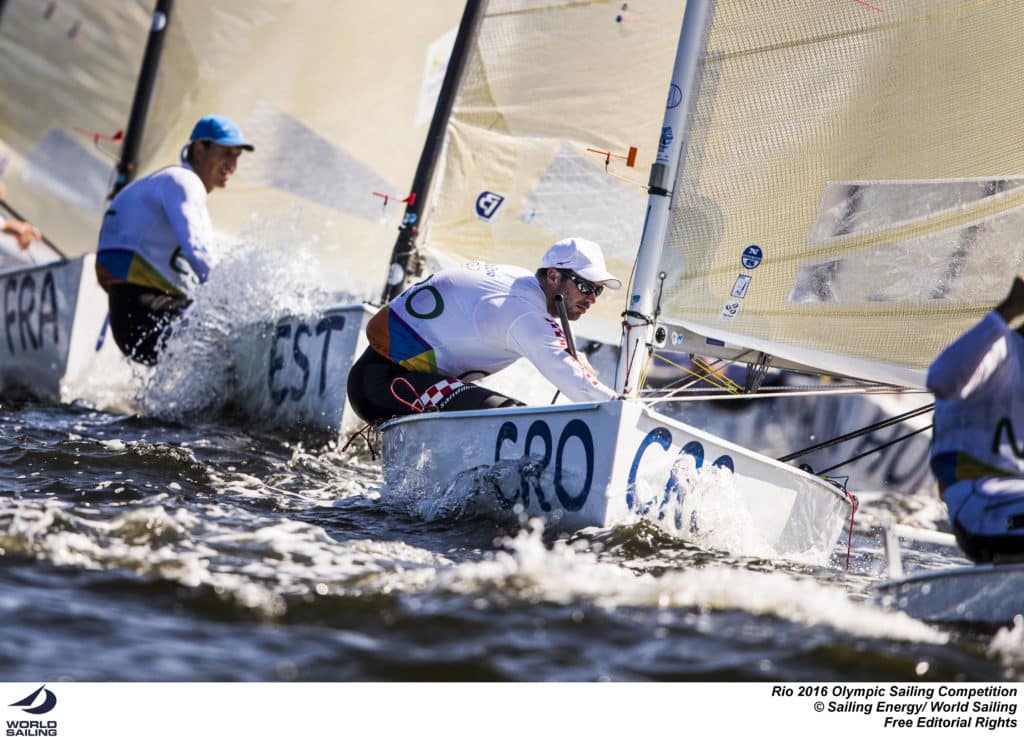
The Rio 2016 Olympic Sailing Competition
USA’s Caleb Paine will have to win the medal race and Zbogar finish last to win a silver, but stranger things have happened in the Olympics. If this were the case, they’d be tied with 76 points, but the tiebreaker in this regatta goes to the higher finish in the medal race. For Paine, the road to the final has been bumpier than most. Though he was temporarily DSQ after a second place finish, video evidence came to light the next day that prompted the jury to overturn the DSQ. Without that change, Paine wouldn’t have made the medal race. With his confidence restored, Paine could bring the USA their first sailing medal since 2008.
Racing immediately after the Finns, Argentina’s Santiago Lange and Camille Saroli lead the Nacra fleet, but only just. At 54, Lange’s two bronze medals in the Tornado in 2004 and 2008 have given this multihull master a slight edge over the class. “We haven’t done anything yet,” says a modest Lange when asked about their medal opportunity. “The competition we are facing are really good sailors and the Nacra fleet is very close, which is why we’re so inconsistent.” Lange is looking forward to the rest day, especially taking the time to rest (Lange had surgery last year to remove a lung) and to watch his sons, Klaus Lange and Yago Lange, compete in the 49er. There are seven boats, including the Argentinians, who have a chance at a gold medal on Tuesday, and all ten could medal at some place. Lange and Saroli are not guaranteed a medal of any variety due to the closeness of the class.
Full results are available at sailing.org.

